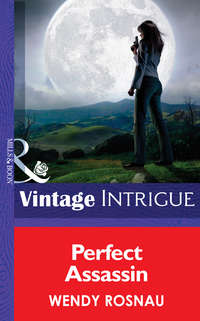
Полная версия
The Long Hot Summer
“Yes, that was our agreement. Do you suppose, Nicki, you could send Bick down there to open the windows and air the place out? I’ll scribble a message for Johnny. Bick can leave it on the table, since I can’t get down there to meet him myself.”
Mae’s gaze traveled across the driveway to where a trail led to the boathouse. The trail was a quarter-mile through dense woods—a shortcut to Belle Bayou. “I haven’t seen Johnny in fifteen years,” she offered wistfully. “I intended to visit him in prison, but my lawyer advised against it.”
Judging by the look in her grandmother’s aging eyes, she was sorry she hadn’t. Nicole found herself growing curious. She asked, “Is there some way I can help?”
Her grandmother reached out and patted Nicole’s arm. “You already have—by coming home. First you and now Johnny. It’s perfect.” She paused. “When he left I had no idea it would be years before he came home. I wonder how he turned out in the looks department? If he ended up anything like his father or grandpa, watch out, dear. Gracious, but those Bernard men were handsome.”
Nicole didn’t need to see him to know how he’d turned out. The report on the desk in the study confirmed that Johnny Bernard had gotten his reputation the old-fashioned way: he’d earned every bit of it. And as far as his looks went, she didn’t really care how handsome he’d turned out. They weren’t shopping for a lawn ornament, just a simple carpenter. How he looked on a ladder was of no importance, as long as he could climb one.
She bent forward and kissed her grandmother’s cheek. “When you get your note written, I’ll see that Bick takes it with him. What do you say we have some lemonade? I’m dying.”
“You’re always dying,” Mae teased. “Where should we have our lemonade? On the front porch?”
Nicole positioned herself behind Mae’s wheelchair. “I’ve got an original idea. Why not relax in front of the fan in the study?”
An hour later, Nicole learned that Bick had taken himself off to town. Forced to run her grandmother’s errand, she hurried along the wooded trail toward the boathouse. She checked her watch, glad to see that she still had an hour before Johnny Bernard would descend on them. She wasn’t sure how she was going to face him after trying to get rid of him over the phone, but with any luck she wouldn’t have to think about that until later. She would open the windows, leave Gran’s note on the table and be gone before he even set foot on Oakhaven soil.
Within a matter of ten minutes, Nicole was through the woods, standing in a small clearing just west of Belle Bayou. All things considered, she was more intrigued by the moody swamp than frightened by it. It had a certain allure, a quality she had tried many times to capture on canvas.
It was an artist’s paradise, she admitted. The colorful vegetation that grew out of the muck along the banks fascinated her as much as did the huge cypress trees with their gnarly roots and distorted branches. The branches dripping with Spanish moss along the water’s edge reminded her of a travel brochure she’d once seen advertising scenic Louisiana.
Her gaze followed the grassy bank to the old wood and stone boathouse, this being the first time she’d come down to the bayou since she’d arrived from L.A. From an artist’s point of view the place had immense possibilities. It was dark and eerie, straight out of a gothic novel, and when she decided to paint it, she would do so with that in mind.
She started down the overgrown path through the clearing, approaching the aging structure from the north side. She reached for the door’s rusty latch, and as she pulled it open, it groaned loudly in protest. Inside, she ran her hand along the cool brick in search of the light switch. Relieved that it still worked, that she hadn’t been greeted by any creepy-crawly surprises, Nicole followed the ray of light past the clutter and ascended the stairs to the second story.
To her surprise, what once had housed old tools and fishing gear now resembled a modest apartment. She recognized a few pieces of furniture from the house: a rocker, a bureau, a square table and two chairs. The dark red sofa, she remembered from the attic. An iron bed made up with a blue bedspread had been arranged in such a manner that one could lie down and still gaze out the window and enjoy the bayou’s beauty at night. A partition wall cut the room in half. On one side, a small kitchen; on the other, an even smaller bathroom.
The window facing the woods, as well as the one overlooking the moody, black bayou, was already open. Puzzled, Nicole concluded Bick had second-guessed Gran’s request and had opened the windows that morning. Not giving it any more thought, she placed Gran’s note on the table and walked to the nearest window to gaze outside. She scanned the shoreline, noting the boat tied to the sagging dock, the cane pole resting across the seat.
Cane pole? Bick never fished with a cane pole.
She made the mental observation just as she heard something. A moment later, she identified the noise as footsteps—footsteps that had reached the stairs and were now steadily climbing.
She glanced at her watch. It was a little past three. He had said four. Nicole made a quick swipe at her blond bangs, swore silently at her bad luck, then forced herself to turn. Her first thought was that the black-bayou voice on the phone was a perfect fit for the dark and dangerous man who had suddenly filled the doorway.
Nicole’s gaze drifted over Common’s rebel, deciding that he was everything she had expected him to be, and more. A couple of inches over six feet, he stood shirtless, his long legs encased in ragged jeans. His broad shoulders looked hard as iron, his torso and stomach a series of layered muscles and corrugated definition. It was obvious he was in top physical condition. But then, what else did a jailed criminal have to do all day but get bigger and more dangerous by pumping iron in the prison gym? Hadn’t she read a controversial article about that somewhere?
She had taken a few self-defense classes—living in L.A., it had been the smart thing to do. Even so, it would be almost funny trying to use what she’d learned against a marine who could add Angola State Penitentiary to his bio.
To be sure, he was a survivor. Of that, Nicole had no doubt—as she stared into a pair of rich amber, see-to-the-soul eyes that promised Johnny Bernard had seen it all, and possibly done it all, too.
She watched as he reached behind his back and closed the door. The movement shifted him slightly sideways, sending a stream of sunlight from the window into his straight, black hair. Loose, it would have touched his shoulders, but to combat the heat he had pulled it back from his face and secured it low at the nape of his neck.
If not for a straight high-bridged nose and a sensual mouth softening his otherwise hard features, he would have been almost too rugged to be referred to as handsome. Those two features, combined with a reckless thin scar trailing from his right eye to his temple, softened him and made him human, thus dangerously good-looking.
Clearing her throat, Nicole wrapped herself in false confidence—something she did often these days—and forced herself to speak. “I thought you said you were arriving at four o’clock.”
“Did I?” He relaxed against the door and loosely folded his arms over his broad chest. The smile Nicole imagined him wearing earlier throughout their phone conversation appeared. He spared a quick glance at the plain silver watch on his wrist, then made eye contact with her once more. “Looks like you’re early, too. Anxious to meet me, Nicki?”
She hadn’t expected him to know her name, Johnny could tell by the surprise in her blue eyes. But he did know her name, and a whole lot more. He had pumped Virgil before he’d left the motel, and the old man had been eager to talk. In fact, he had claimed Nicki Chapman the “perdiest femme” he’d ever seen. And Johnny had to agree, she was the best thing he’d seen in a helluva long time.
Somewhere in her twenties, she was a little above average height, her body curvy and delicate. The delicate part warned him off right away—he avoided fragile women like they had the plague. They reminded him of glass figurines, and, frankly, they made him nervous. He did like looking at her, though. Liked her sexy long bangs and the way she let them play an intentional game of hide-and-seek with her eyes. Her honey-blond hair was shoulder-length and shiny. Her cutoffs, mid-thigh, flashed long, slender legs and sexy knees. Her short T-shirt was a distinct shade of blue, a perfect match for her eyes.
She’d been born in L.A. Her parents had died two years ago in a plane crash. This came from Virgil. She was an only child like Johnny, Virgil had said, but he couldn’t remember what she did for a living. Apparently, she’d moved in with the old lady a few weeks ago with the intention of making Oakhaven her permanent home.
“I came to drop off a note from Gran.” She gestured to the piece of paper on the table. “I had planned to open windows, too, but I see you already opened them.” She thrust her hand out. “Ah, I’m Nicole Chapman. Mae’s granddaughter. We met on the phone.”
Johnny was surprised that she offered her hand. Most people were reluctant to get that friendly with him. Too bad he was going to have to decline the gesture. He wasn’t sure what he had on his hands, but they were filthy. He unfolded his arms and showed her that both of his hands weren’t even the same color. “I was catching supper, among other things,” he explained. “Catfish.”
Her gaze drifted to his dirty hands, then she promptly dropped the one she’d offered. “Since you’re here and you’ll be working for Oakhaven, I—”
“Will I, cherie? No new plan to fire me before I get started?”
“You made it clear over the phone that the choice wasn’t mine, remember? I believe the word you used was nonrefundable. I checked with Gran and that seems to be the case.” She broke eye contact with him and glanced around the room. “Gran took a lot of time to fix this place up. I guess that means something.” She brought her gaze back to his. “You’re a carpenter, isn’t that right, Mr. Bernard?”
“Johnny. The name’s Johnny. And, yeah, I’m a carpenter.”
“Well, Oakhaven is in need of major repairs, Johnny, so it looks like there will be plenty to keep you busy.”
Her concession to use his name amused him, and Johnny grinned. “So I’ve noticed.”
She arched one delicate eyebrow, but didn’t argue with him.
He gestured to the rocker, then shoved away from the door and strolled past her to the couch. Once she’d slipped into the chair, he dropped down on the couch and let his long legs sprawl apart. The day’s heat had flushed her face, and he noted she looked miserably hot. He, on the other hand, had never felt better. He loved the Louisiana heat; it was in his blood, the hotter the better. He’d run away from Common years ago. Only he hadn’t left the state. He’d been calling Lafayette home for almost two years.
“Will the job take the entire summer?” she asked.
“That depends on what’s on the old lady’s list.”
A bead of sweat slipped past her left temple and down her cheek. She made a swipe at it, then lifted her right leg a fraction of an inch, then the other one. It didn’t dawn on Johnny until he saw her go through the motion a second time that her bare legs were sticking to the wooden chair.
“Do you have a glass of water with ice?” she suddenly asked.
“Sure.” Johnny stood and walked into the small kitchen. He scrubbed his hands, then retrieved a glass from the cupboard, filled it with water and dropped in a couple of ice cubes from the space-saving fridge. He returned and handed it to her. “One glass of water, served with ice.”
She peered into the glass, then glanced at his clean hands. “Thank you. I haven’t adjusted to the humidity yet,” she quietly explained, “but I will eventually.”
Johnny wasn’t convinced—she looked about as miserable as she could get. He returned to the couch and watched her use the glass to cool her warm cheek. “Carpenters don’t come cheap,” he drawled, watching her slide the glass down her neck, then back up. She had a pretty neck, long and pale.
“No, they don’t. But I imagine carpenters on parole are just happy to be working at all.”
Johnny laughed out loud, liking her honesty. “So I’m supposed to work cheap, is that it? Or am I donating my time?”
She moved the glass to her opposite cheek and closed her eyes for a moment. “That’s something you’ll have to work out with Gran. She sprained her ankle a week ago and she’s in a wheelchair. I imagine we can get our supplies at Craig Lumber, don’t you think?”
“If they don’t carry it, I’m sure they’ll order it.”
“Good, I’ll call them tomorrow and make sure Gran’s account is in order.”
“Jasper Craig still own the lumberyard?”
“Yes, but I’m told Farrel— Ah, his son runs the business now that his father’s retired.”
By the look on her face, Johnny was sure she knew about the bar fight that had landed him in jail—at least, Sheriff Tucker’s version. “My parole states no physical confrontations. What that means, cherie, is I’m not supposed to engage in any violent behavior. I don’t plan on killing Farrel Craig the next time I see him.”
“Should that make me feel better?”
Johnny shrugged. “For the record, I didn’t start that fight at Pepper’s. Even though I’m sure that’s what you’ve heard. The truth is, if I had wanted Farrel dead, I would have killed him years ago. Leastwise, that’s what I told the judge. Now, maybe after I’ve been in town awhile I’ll feel different—Farrel being the number-one jackass that he is.”
“So you’re saying the bar incident wasn’t your fault?”
“I’m saying, maybe I defended myself a little too good.” Johnny paused. “Now about those repairs. The place looks like hell. Where do we start?”
For the next half hour, they discussed what Johnny would tackle first. The rotten roof and porch were the most urgent. But there was more: inside jobs for a rainy day, a dead tree in the front yard, painting, window repair.
After a while, Nicole stood, peeling her legs away from the chair one at a time. “If you could figure out some kind of a supply list, I would appreciate it. That’s really not something I understand. If you can’t—”
“I can.” Johnny stood.
She looked nervous suddenly, and as she attempted to step around the chair she stumbled. Before she landed on the floor, Johnny took one long stride and reached out to grip her upper arm, quickly bringing her back to her feet. She was as lightweight as a hollow-legged bird, he noted, letting her go as quickly as he had rescued her.
Hastily she handed him the empty water glass then pulled herself together without delay, impressing him once more with how cool and collected she could be.
She crossed to the door, surprising him when she suddenly turned around in the doorway. “Gran called you her friend. I’m curious to know if it works both ways. Do you consider my grandmother your friend, Johnny Bernard?”
Johnny stayed where he was, his hands shoved into his back pockets. “I really don’t think that’s what you want to know, cherie. What you really want to know is if she’ll be safe around me? The answer is, yes. I wouldn’t hurt the old lady, or anyone she cares about. Good enough?”
“If you mean it,” she said bluntly, and left.
Johnny listened to her light footsteps descending the stairs. And once the outside door creaked, he moved to the window to watch her cross the clearing.
Part of the reason the heat was eating her up so badly was that she moved too fast, he decided. In Louisiana, things were best done at half speed. She needed to learn that, if she was ever going to appreciate the tropical heat. He should mention it, but right now wouldn’t do much good—she’d be too busy second-guessing his motives to take a suggestion from him.
The afternoon passed quickly. Before Johnny knew it, the sun had melted into the bayou and he’d spent four hours repairing the dilapidated dock that had been ready to float away in the next windstorm. Now as he walked along the trail in the dark, his thoughts turned to the old lady. He couldn’t put off seeing her any longer, though that’s just what he’d been doing. Why, he didn’t know. Maybe because she was going to look at him long and hard with those knowing blue eyes of hers, and she was going to make him start feeling guilty for leaving fifteen years ago without saying goodbye.
The minute he emerged from the wooded trail and glanced across the driveway, he knew he’d put off seeing her too long. The two-story house was completely dark except for one lone light shining in the left wing. Relieved in a crazy way that made him feel like a vulnerable kid again, he crossed the driveway and ambled toward the big house. He could see the improvements Henry had made over the years. Mae’s late husband had been a handy devil. The courtyard had been enlarged, and there was a swing in the backyard he didn’t remember from when he was a kid. Two more sheds had been built west of the big field. The carport had been extended, and now accommodated not only Mae’s ’79 Buick, but a sleek-looking white Skylark.
Henry had died of a heart attack five years ago. Virgil had written the news to Johnny in the Marines. Johnny hadn’t kept in contact with anyone else in town, but Virgil was a persistent old bird and he had tracked Johnny down years earlier. He had written faithfully over the years. Johnny had never been much of a letter writer, but he’d managed one or two a year, which had suited Virgil just fine.
More than once, Johnny had thought about writing to Mae. But he hadn’t known what to say, so he’d just told Virgil to let her know he was alive. The day he’d received the letter of Henry’s death, for one crazy second he’d wanted to come back for the funeral. But then he’d remembered how hard it had been burying his father, and a few years later his mother, and he had chickened out.
In the sheds, Johnny found old lumber and Henry’s carpentry tools. In the older shed, he found Henry’s tan ’59 Dodge pickup. The memories the pickup resurrected were unexpected. Johnny tucked them away after circling the pickup twice, then wandered back to the house and found a sturdy oak in the front yard to settle against.
While lighting a cigarette, he saw someone pace by the French doors in the left wing of the house. Johnny knew immediately who it was—the blue-eyed bird with the shapely legs and long bangs was easy to spot. Smiling, he slid down the tree to the ground and rested his back against the sturdy oak. He ignored the steady hum of mosquitoes overhead and the distant rumble of thunder. An hour passed, and still he watched her pace the room anxious about something, or someone. Was his arrival keeping her up? It made sense; she must have heard some pretty wild stories about him by now.
By the time she turned out the light and went to bed, it was after midnight, and Johnny had smoked a half-pack of cigarettes. He got to his feet and strolled out the yard and down the driveway. Since leaving Angola he couldn’t get enough fresh air, and, although it was late, he decided to walk to his parents’ old farm.
The thunder continued as he reached Bayou Road and headed east. His pace, however, slowed steadily, his surroundings triggering memories from the past.
Johnny tried to shake them off, but in a matter of seconds he was a kid again, running so fast his lungs felt as if they would explode inside his chest, his bare feet pounding the dirt while Farrel chased after him waving a stick. He could hear Clete Gilmore hollering, calling him ugly names and encouraging Farrel to “Get him!”
As he ran, he could see Jack Oden out of the corner of his eye, could see him gaining on him. More than once Johnny had wished that the gangly kid they all called Stretch had been his friend instead of Farrel’s.
Johnny stopped abruptly. He was breathing fast, as if he’d actually been running. He shook his head, forced the image back into the black hole where it belonged. He started down the road again, this time noticing that the potholes had gotten deeper, the ditches still waterlogged and ripe with decay.
A rusted-out mailbox signaled the farmhouse was just up ahead. He stepped over the rubble that had once claimed to be a sturdy gate, and walked steadily on. His heart rate picked up again, making his chest feel miserably tight. He didn’t want to feel anything, he told himself. Least of all, vulnerable and scared. Lonely. Yet of all the feelings tugging at his insides, those inescapable emotions dominated.
He scaled the porch steps and stopped, his hand poised on the doorknob. He turned the knob—surprisingly it wasn’t locked. He took a deep breath, preparing himself for whatever bleak remains still haunted the old house. Then, after fifteen long years, Johnny opened the door and stepped inside.
The floor creaked just the way it used to, the sharp smell of rotten wood swelling his nostrils in protest. He lit a match and glanced around the empty living room. The place had been ransacked, which couldn’t have taken more than ten minutes—poverty keeping them from owning so much as a picture to hang on the wall.
He turned to his right and held the match toward the kitchen, and when he did, something scurried across the bare wood floor. He shifted his gaze to the shredded curtains at the window, then to the crude set of cupboards, the warped doors all standing open.
He walked past the kitchen and into the little room his parents had designated his. It was barely big enough to fit a mattress on the floor, and to his surprise the old ragged remains were still there, molding in the corner.
Despair overwhelmed him, and Johnny’s stomach knotted. He hadn’t expected to feel this way, hadn’t wanted any part of the past to intrude on the present. But he was a fool to think that it wouldn’t—there was just too much he had run away from.
The depth of poverty that had kept his family in a choke-hold continued to gnaw at Johnny once he returned to the boathouse. He stood at the window overlooking Belle Bayou, a cigarette cornered in his mouth, and closed his eyes. Not liking his melancholy mood, he willed himself to think of something else. The vision that popped into his head had silky blond hair and sexy blue eyes. Johnny took his time, treated himself to the perfect fantasy.
It was all too wicked and perfect to come true, of course. But a man could dream. And so he did.
Chapter 3
The dream was nasty, and he was in it.
Disgusted with herself, Nicole jerked awake and sat up in bed. A quick glance at the clock on the nightstand told her it was barely six. She’d grown used to functioning on five hours or less these past few months, tormented by the nightmare she’d left behind in L.A. Last night, however, her thoughts had shifted to the man with the river-bottom drawl and see-to-the-soul eyes.
She told herself it was because of Gran and the unusual situation surrounding Johnny Bernard’s return. But was it? The man had taken her completely by surprise yesterday. He had looked dark and dangerous, yes—but not entirely in the way she had envisioned.
Disgusted that she was giving so much thought to the subject, Nicole wrestled with the rose-colored satin sheets and climbed out of bed. The sticky, warm air inside the room settled against her, and she sighed with the knowledge that she would have to find some way to cope with the heat again today. Her gaze fell on the fan near the end of the bed, and she almost reached out and turned it on. No, if she was ever going to adjust she would have to stop relying on that damn fan.
She swept her blue satin robe off the foot of the bed, slipped it on and tied the sash around her trim waist. A quick glance outside had her wondering if the late-night rain had left a breeze behind. Relief an open door away, she moved to the French doors that led on to the front porch and flung them wide in a sudden burst of hopeful energy.
At the very least, she had expected to hear a chorus of morning songbirds, but instead she felt a clunk and heard a string of colorful cursing, half of it in French. In an instant she knew who owned that distinctive drawl. Dreading her next move, Nicole forced herself to peer around the door.







